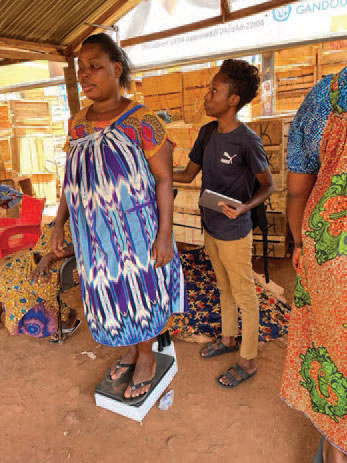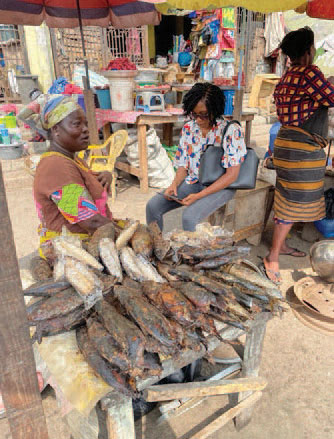PARI NUTRITION
Project Detail
The study seeks to identify how household nutrition outcomes are impacted by the time spent in various activities by women farmers in Techiman as well as women food and nonfood traders on market days and non-market days in Accra and Techiman.
- Specific CSIR Thematic area:Food security & poverty reduction; Science and People
- Collaborating institutions/partnership: Center for Development Research (ZEF) University of Bonn, Forum for Agriculture Research in Africa (FARA)
- Duration:18 months
- Funding source (donor):Federal Ministry for Economic Cooperation and Development (BMZ)
Participating scientists (with PI)
Specific Objective
The study seeks to identify how household nutrition outcomes are impacted by the time spent in various activities by women farmers in Techiman as well as women food and nonfood traders on market days and non-market days in Accra and Techiman. The effects of other socioeconomic variables will also be examined. Among others, the research will assess (1) whether women’s time spent in home production correlates with household nutrition outcomes, (2) whether the time spent on various activities on market days and non-market days affects women and household (child) nutrition differently, (3) whether the type of occupation, type of products traded (food versus nonfood products), affect women’s and household nutrition differently, (4) whether some factors may help mitigate any possible negative impact of women’s time use on nutrition. The study also seeks to test a new digital Application for time-use data collection.
Expected Outcome
The research is expected to provide insights into whether and which interventions may influence women’s time use and time allocated to child and household food provision and nutritional needs. As an outcome, the study will provide strategies for improving the nutritional status of women of reproductive age as well as members of their households.
Major Outcomes
The project is still ongoing and therefore the major outcomes are the activities which have been undertaken since the inception of the project. During the period under review, the project team undertook data collection from Techiman and Accra using the cell phone application. A Purposive sampling method was used with a total of 60 market women, where thirty-four of them are Madina and 26 are Kaneshie. For Madina, a refresher Training on how to use the Time-use App for data collection fifty women because the previous market women trained encountered a lot of challenges while using the application to provide data, ten participants pretested the app, unfortunately only thirty-four women participated in: out of the fifty trainees due to low interest and some personal reasons. The duration for data collection was two weeks and data were uploaded three times. For Kaneshie, forty women were trained on how to use the Time-use App for data collection, twenty-six participated, nine participants pretested the app, the duration of data collection was three weeks and data upload was done three times. The team members attended and submitted an abstract that was accepted for presentation at the African Continental Association for Food Protection (2nd ACAFP) Food Safety Conference. 12-14 December 2023. Accra – Ghana, with title Out-of-Home Eating, Dietary Patterns and Diarrhoea Occurrence Among Ghanaian Female Traders and Farmers.
Impact on the Economy
When women and their household members are nutritionally secure and healthy, they can concentrate on their trading activities and make more sales and income as a result. They will also save money that otherwise would have been used in hospital attendance and medication. This will also reduce the health cost to the government.
Major policy action needed
Women traders spend long hours in the markets and as a result, they most often eat out. It is therefore critical for the government to enforce the Public Health Act (sanitation and hygiene) so that the safety of ready-to-eat foods sold in the markets is not compromised. Day-care facilities are also needed around the markets so that mothers can protect their children from the harmful effects of excessive consumption of street foods.








